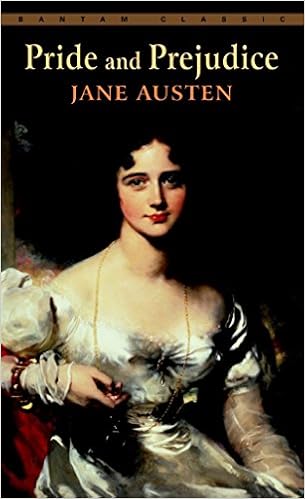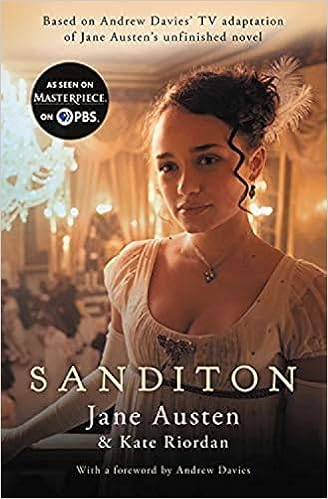
Pride and Prejudice (Barnes & Noble Classics)
Description
About the Author Carol Howard , educated at SUNY Purchase and Columbia University, where she received her Ph.D. in 1999, chairs the English Department and teaches in the Theater Department at Warren Wilson College in Asheville, North Carolina. She has published essays on early British and contemporary African-American women writers and has coedited two books on British writers (1996, 1997). Her primary scholarly interest is the literature of seventeenth- and eighteenth-century England. Excerpt. © Reprinted by permission. All rights reserved. From Carol Howard’s Introduction to Pride and Prejudice It is sometimes said that Austen’s gift was to be a shrewd observer of her narrow, genteel social circle, that her experience and knowledge of the world were limited and her life sheltered, and that her novels realistically reflect the peaceful late-eighteenth- and early-nineteenth-century village community and English countryside she inhabited. That Austen was a careful observer of human motivation and social interaction is certainly true. One should not assume, though, that her choice to write novels of manners means that she was unaware of or unaffected by the political and social upheaval of her day. The idea that she centers her novels on the social classes with which she was most familiar is not entirely the case, although she had occasion to observe members of the gentry and aristocracy whose circumstances resembled those of some of the characters who populate her novels. Whether her own life was perfectly serene is questionable: Most lives, no matter how uneventful in retrospect, have their vicissitudes. At the very least, Austen and her family must have had concerns over the tumultuous historical events that unsettled the British nation during their lifetime. She was born in 1775, the year that marked the beginning of the American Revolution. Several decades later, she would read newspaper accounts of another British conflict with the new American nation in the War of 1812, which began as she finished revising Pride and Prejudice . What must have played significantly in Austen’s imagination, as in the mind of every Briton, was the ongoing war with Napoleon’s forces, which marked the culmination of a century of conflicts between Britain and France, and which ended, with the Battle of Waterloo in June 1815, six months before her fortieth birthday. The British fear of invasion by Napoleon, which endured until 1805, caused concern even in the towns and villages that seemed safest. Austen would have been aware of the billeting of British militia troops in the English countryside, and she certainly followed the career of her brother Henry, who had joined the Oxford militia in 1793, when Britain’s latest war with France erupted in the aftermath of the French Revolution. She must also have taken a personal interest in the campaigns of the British navy, which counted her brothers Francis and Charles among its officers. To what extent she cared about daily political events is difficult to discern, for her letters are marked by characteristic irony. Of a newspaper report of an 1811 battle of the Peninsular War, when Napoleon invaded Spain and Portugal in an effort to close ports to British commerce, Austen declared, “How horrible it is to have so many people killed!—And what a blessing that one cares for none of them!” (Le Faye, Jane Austen’s Letters ).
Features & Highlights
- &&LDIV&&R&&LDIV&&R&&LDIV&&R&&LDIV&&R&&LDIV&&R&&LI&&RPride and Prejudice&&L/I&&R, by &&LB&&RJane Austen&&L/B&&R, is part of the
- &&LI&&RBarnes & Noble Classics&&L/I&&R
- &&LI&&R &&L/I&&Rseries, which offers quality editions at affordable prices to the student and the general reader, including new scholarship, thoughtful design, and pages of carefully crafted extras. Here are some of the remarkable features of &&LI&&RBarnes & Noble Classics&&L/I&&R: &&LDIV&&R
- New introductions commissioned from todays top writers and scholars
- New introductions commissioned from todays top writers and scholars
- Biographies of the authors
- Biographies of the authors
- Chronologies of contemporary historical, biographical, and cultural events
- Chronologies of contemporary historical, biographical, and cultural events
- Footnotes and endnotes
- Footnotes and endnotes
- Selective discussions of imitations, parodies, poems, books, plays, paintings, operas, statuary, and films inspired by the work
- Selective discussions of imitations, parodies, poems, books, plays, paintings, operas, statuary, and films inspired by the work
- Comments by other famous authors
- Comments by other famous authors
- Study questions to challenge the readers viewpoints and expectations
- Study questions to challenge the readers viewpoints and expectations
- Bibliographies for further reading
- Bibliographies for further reading
- Indices & Glossaries, when appropriate
- Indices & Glossaries, when appropriate
- All editions are beautifully designed and are printed to superior specifications; some include illustrations of historical interest. &&LI&&RBarnes & Noble Classics &&L/I&&Rpulls together a constellation of influences―biographical, historical, and literary―to enrich each readers understanding of these enduring works.&&L/DIV&&R&&L/DIV&&R&&L/DIV&&R&&LDIV&&R &&L/DIV&&R&&LDIV&&RIt is a truth universally acknowledged, that a single man in possession of a good fortune must be in want of a wife. Thus memorably begins &&LB&&RJane Austen&&L/B&&Rs &&LI&&RPride and Prejudice&&L/I&&R, one of the worlds most popular novels. &&LI&&RPride and Prejudice&&L/I&&R―Austens own darling child―tells the story of fiercely independent Elizabeth Bennet, one of five sisters who must marry rich, as she confounds the arrogant, wealthy Mr. Darcy. What ensues is one of the most delightful and engrossingly readable courtships known to literature, written by a precocious Austen when she was just twenty-one years old.&&LBR&&R&&LBR&&RHumorous and profound, and filled with highly entertaining dialogue, this witty comedy of manners dips and turns through drawing-rooms and plots to reach an immensely satisfying finale. In the words of Eudora Welty, &&LI&&RPride and Prejudice&&L/I&&R is as irresistible and as nearly flawless as any fiction could be.&&LBR&&R&&L/DIV&&R&&LDIV&&R&&LP style="MARGIN: 0in 0in 0pt"&&R&&L/B&&R&&L/P&&R&&LP style="MARGIN: 0in 0in 0pt"&&R &&L/P&&R&&LP style="MARGIN: 0in 0in 0pt"&&R&&LSTRONG&&RCarol Howard&&L/B&&R&&L/B&&R&&L/B&&R&&L/B&&R, educated at SUNY Purchase and Columbia University, where she received her Ph.D. in 1999, chairs the English Department and teaches in the Theater Department at Warren Wilson College in Asheville, North Carolina. She has published essays on early British and contemporary African-American women writers and has coedited two books on British writers (1996, 1997). Her primary scholarly interest is the literature of seventeenth- and eighteenth-century England.&&L/P&&R&&L/DIV&&R&&L/DIV&&R&&L/B&&R&&L/DIV&&R&&L/DIV&&R





